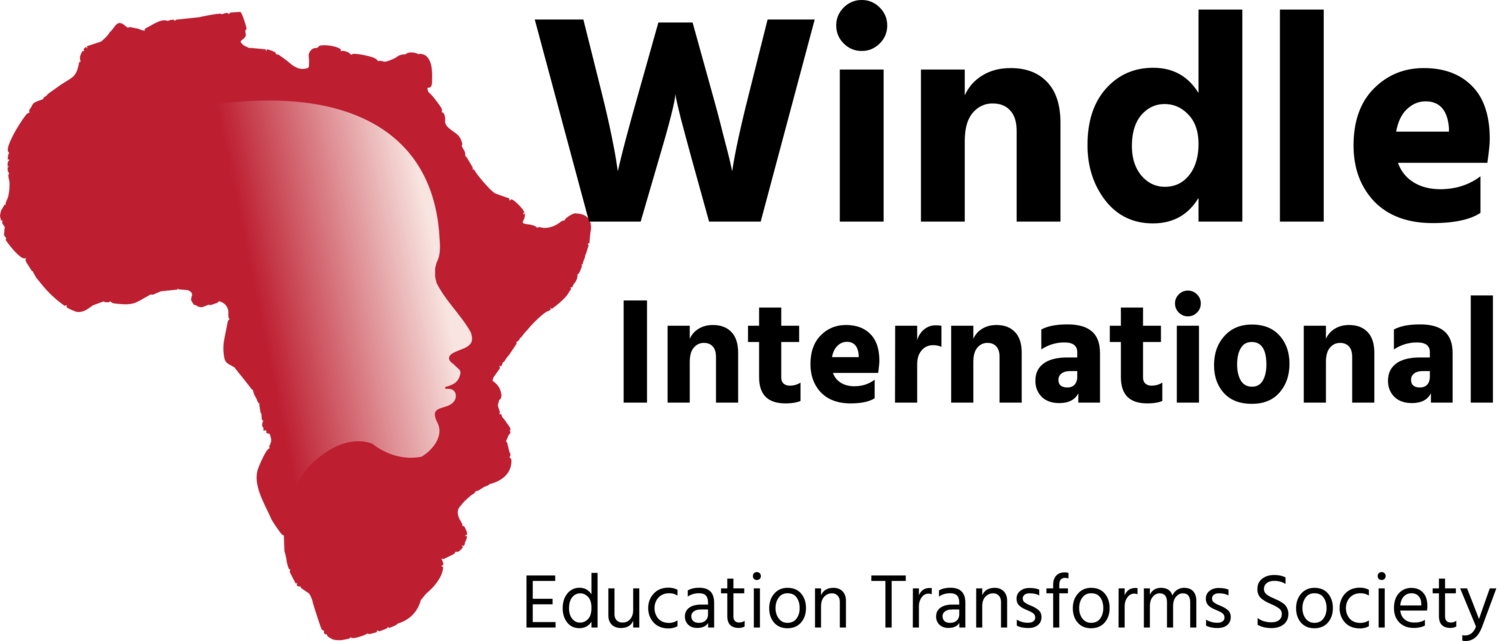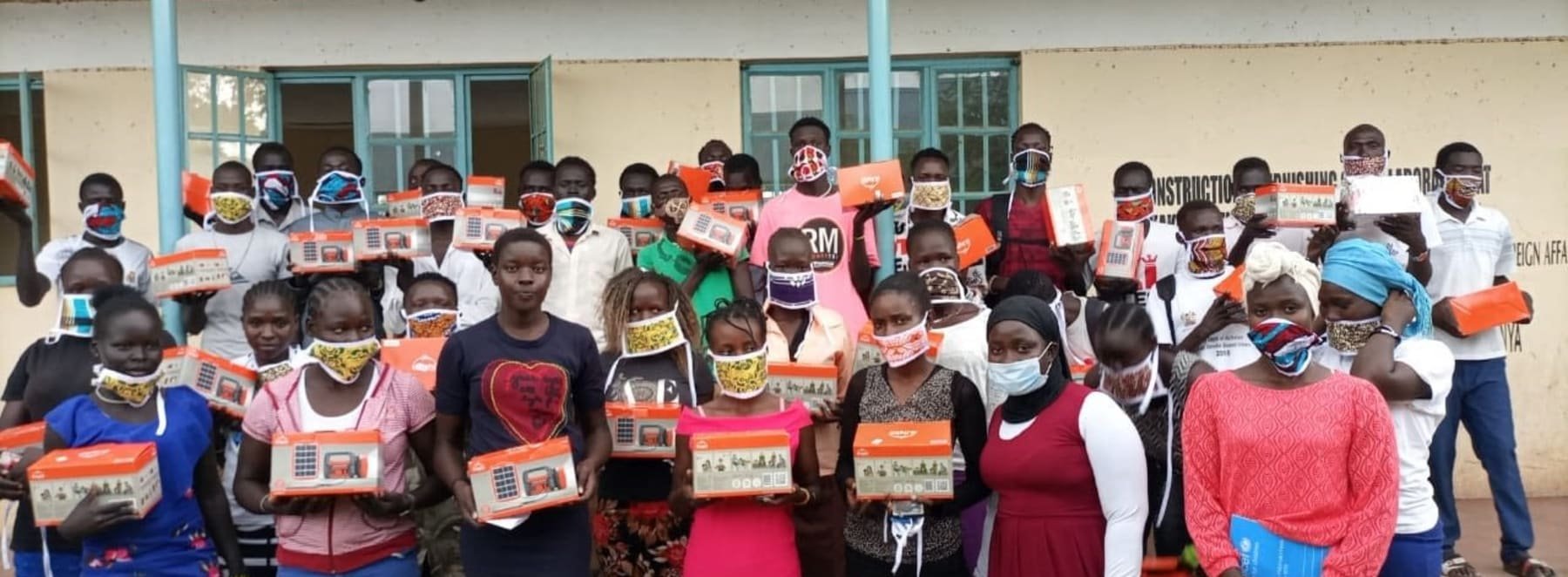Five ways Covid-19 has affected education in Eastern Africa
In March 2020, the first cases of the COVID-19 virus were reported in Eastern Africa. Whilst the number of confirmed cases has remained relatively low in refugee camps and settlements so far (although this is possibly due to low testing rates), the pandemic has still taken a huge toll on refugees’ lives. And as cases are now beginning to increase in some of the world’s largest refugee camps, there is a real danger of cases being introduced and spreading more widely among refugee and host community populations in Eastern Africa, as the lack of sanitation and the high concentration of people in camps increase the chances of the virus spreading.
Education is particularly affected as schools and universities closed in Kenya, Somalia, South Sudan, Sudan and Uganda. Prior to the pandemic, the United Nations High Commissioner for Refugees (UNHCR) reported that access to education for refugees and people affected by conflict and marginalisation is much lower than for non-refugees: worldwide, only 63% of refugee children are enrolled in primary schools, 24% at secondary level and 3% in Higher Education.
Armed conflict is a major cause for driving many children out of school, and it has only been exacerbated by pandemic school closures. Some conflicts have got worse, for example in the Democratic Republic of Congo, which has resulted in an increase in people seeking refuge in neighbouring Uganda. People who are already vulnerable, including children and young people, have been cut off from education, reducing their chance to achieve their academic potential, and to contribute to sustainable development in their communities and wider society. Here, we share the main challenges to education facing refugees, refugee-hosting communities, and all those who have been marginalised or otherwise affected by conflict in Eastern Africa.
1/ Striving to learn from a distance
Our members report that more than 90% of primary and secondary school students have been impacted by the closure of educational institutions in the countries we work in. The United Nations Children's Fund (UNICEF) also reports the very real risk of losing all past gains made in the education sector.
It is a real challenge to offer distance education in refugee camps. Many children lack access to the internet and flexibility to shift school calendars. Windle members provide lessons through local radio stations, printed textbooks and online platforms. But many topics are difficult to understand without the help of a teacher or support from peers, and we are likely to see a decrease in educational attainment following the pandemic. With our continued support, we hope that students will return to school after the pandemic. We are doing all we can to make sure that education continues as much as possible, because the longer children stay out of school, the bigger the risk is that they won’t return.
2/ Maintaining high quality education
Educational resources like text books, desks and exercise books are so important when it comes to making sure children and young people can learn properly, as is having teachers that are properly trained. Whilst these are major issues when it comes to delivering high quality education in refugee and host community settings generally, the pandemic has meant that children are unable to attend school, and therefore cannot access these learning materials. Worldwide, support for education for refugees is decreasing, as countries typically supportive commit less funding to agencies like UNHCR and other Non-Governmental Organisations (NGOs) in light of the pandemic.
3/ Adapting schools for re-opening
As schools begin to open in some countries, our members need to make sure that these are safe and sanitary environments for children.
In Kenya, we manage 16 secondary schools, with a total of 20,000 learners and 120 students per classroom. In Uganda, we manage 13 secondary schools with a total of 11,000 learners, with 160 learners per classroom. Clearly, in order for us to safely deliver education in these contexts, significant changes will need to be made to ensure social distancing measures are in place. With a shortage of trained teachers already, the challenge is to find and train teachers to attempt to bring the student-teacher ratio down.
We’ve already been able to provide some hand-washing stations, hygiene and cleaning materials, reusable face masks, and no-contact thermometers in some schools, for example, in Somalia, where were able to support 2,000 students to sit national exams safely with face masks and other precautions. But our members desperately need more support to extend this across all contexts.
4/ Maintaining an option for higher education
Many universities and Higher Education institutions closed in March, and only resumed lessons in mid-August, severely disrupting the academic year for many students. Whilst a number of institutions were able to offer online lessons, many were not, and those students whose lessons did go online faced the additional barrier of being able to afford or even access the internet required to take part. At Windle International, we count 26 graduations that have all been delayed, with no plans for a virtual graduation.
As a result of the pandemic, many regular tertiary education scholarships were not able to be confirmed for new student intakes in 2020/2021. With fewer opportunities for able students to progress to tertiary level education and training, there is a pressing need for additional resources to make sure everyone can fulfil their potential.
5/ Keeping girls in education
Girls face unique barriers to continue to follow formal education from a distance. Staying at home is an additional challenge for girls, with increased childcare responsibilities & household chores, but also frequent breakouts of inter-communal conflict, neglect and forced marriages. The United Nations Children's Fund estimates that 10 million girls will not be able to return to school following the COVID-19 crisis.
Under-funding has brought many programmes to a halt, which also impacts essential activities, such as child protection, support for survivors of sexual and gender-based violence, health services and girls’ education. Windle members strive to make girls’ education a priority across all of our programmes, and we will continue to do this through the additional challenges that Covid-19 presents.

